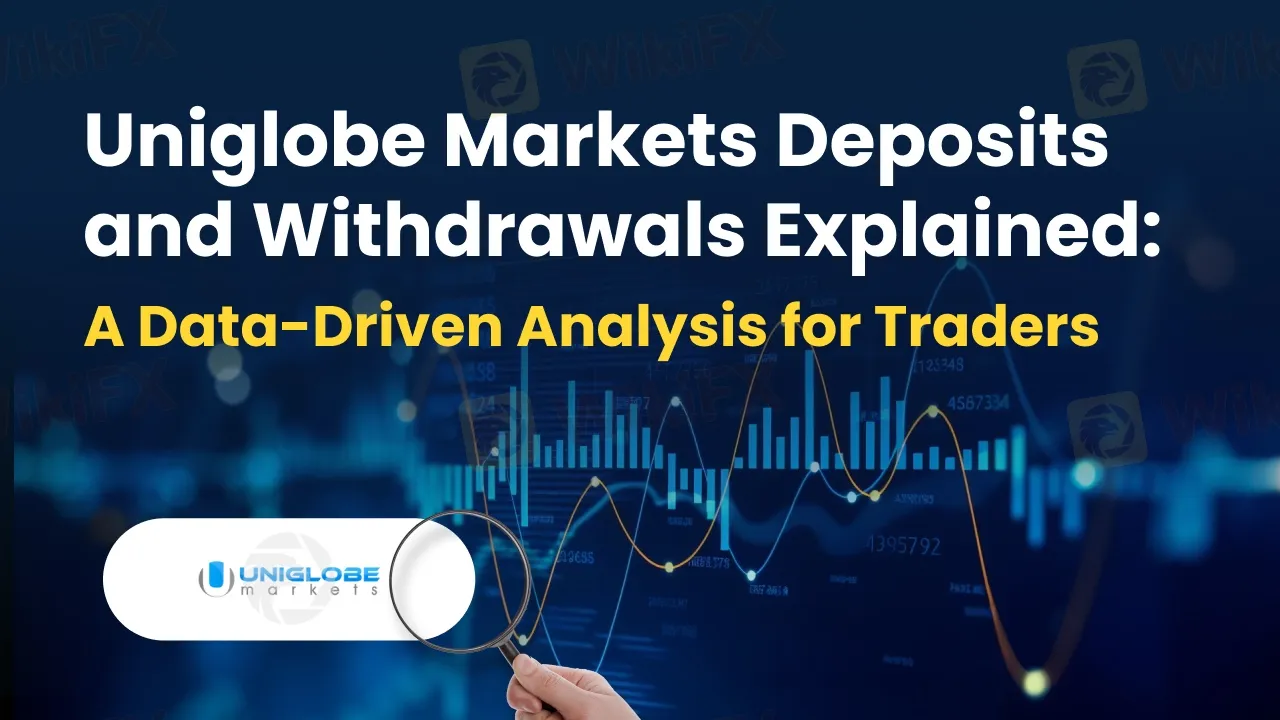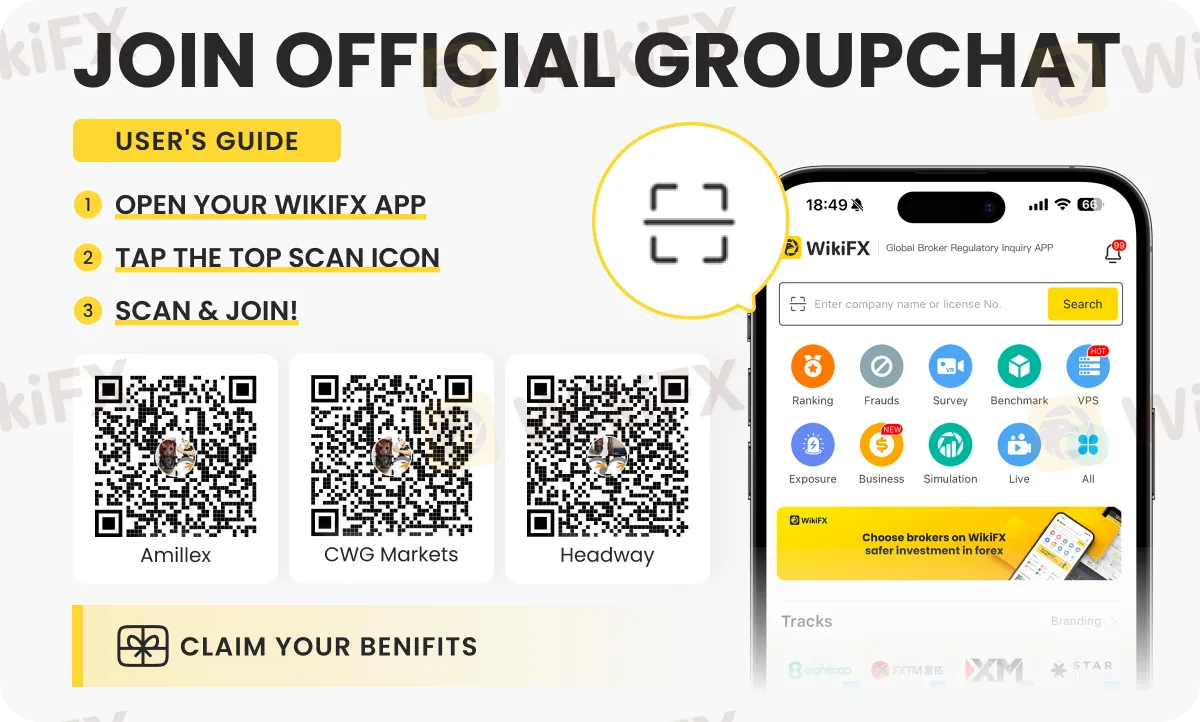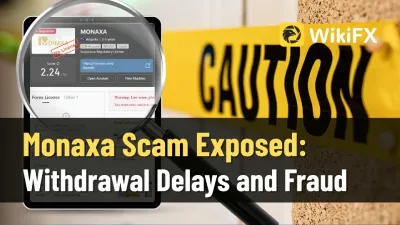Abstract:For any experienced trader, the integrity of a broker isn't just measured in pips and spreads; it's fundamentally defined by the reliability and transparency of its financial operations. The ability to deposit and, more importantly, withdraw capital seamlessly is the bedrock of trust between a trader and their brokerage. When this process is fraught with delays, ambiguity, or outright failure, it undermines the entire trading relationship.
This in-depth analysis focuses on Uniglobe Markets, a broker that has been operational for 5-10 years and presents itself as a world-class trading partner. We will move beyond the marketing claims to scrutinize the realities of its funding mechanisms. By examining available data on Uniglobe Markets deposits and withdrawals, we aim to provide a clear, evidence-based picture for traders evaluating this broker for long-term engagement. Our investigation will be anchored primarily in verified records and user exposure reports to explain the Uniglobe Mar

For any experienced trader, the integrity of a broker isn't just measured in pips and spreads; it's fundamentally defined by the reliability and transparency of its financial operations. The ability to deposit and, more importantly, withdraw capital seamlessly is the bedrock of trust between a trader and their brokerage. When this process is fraught with delays, ambiguity, or outright failure, it undermines the entire trading relationship.
This in-depth analysis focuses on Uniglobe Markets, a broker that has been operational for 5-10 years and presents itself as a world-class trading partner. We will move beyond the marketing claims to scrutinize the realities of its funding mechanisms. By examining available data on Uniglobe Markets deposits and withdrawals, we aim to provide a clear, evidence-based picture for traders evaluating this broker for long-term engagement. Our investigation will be anchored primarily in verified records and user exposure reports to explain the Uniglobe Markets funding methods and withdrawal processing times, highlighting critical risks that every trader must consider.
Uniglobe Markets: An Overview of the Operating Environment
At first glance, Uniglobe Markets projects an image of an established international broker. It offers the industry-standard MetaTrader 4 (MT4) and MetaTrader 5 (MT5) platforms, boasting a “Full License” for the software, which suggests a certain level of technical maturity. The broker provides a range of account types, from Micro accounts with a stated minimum deposit of $100 to various ECN options, catering to different trading styles. Leverage is offered up to a high 1:500.
However, a professional assessment requires looking beneath this surface layer. The corporate structure and regulatory status of Uniglobe Markets immediately raise significant concerns. According to data from global broker inquiry platform WikiFX, the company Uniglobe Markets Ltd is registered in the United Kingdom but lists its physical address in Saint Lucia—a common characteristic of offshore entities.
Critically, WikiFX assigns Uniglobe Markets a very low score of 2.25 out of 10 and issues a stark warning: “Low score, please stay away!” The platform's verification concludes that the broker “currently has no valid forex regulation.” This lack of oversight from a reputable financial authority is the single most important factor to consider, as it directly impacts the safety of client funds and the avenues for dispute resolution—especially concerning deposits and withdrawals.
Uniglobe Markets Funding Methods: A Mix of Claimed and Documented Options
A broker's range of payment methods can indicate its operational scope and commitment to client convenience. Uniglobe Markets' website promotes “Multi Regional Deposit & Withdrawal Solutions,” suggesting a flexible and accessible system.
Claimed Payment Methods
While the primary WikiFX data sheet for Uniglobe Markets does not list specific deposit and withdrawal methods, information from the broker's website and other third-party review sites suggests a wide array of options are supposedly available. These include:
• Bank Wire Transfers: The traditional method for moving larger sums of money.
• Credit/Debit Cards: Standard Visa and Mastercard transactions.
• Electronic Payment Systems: A broad category that reportedly includes popular e-wallets such as Neteller, Skrill, WebMoney, and Perfect Money.
• Local Bank Transfers: The broker claims to offer region-specific transfer options to simplify funding for clients in different countries.
Documented Payment Methods from User Reports
More revealing, however, are the payment methods documented in actual user complaints. A detailed exposure report on WikiFX from a trader in Taiwan provides concrete evidence of a method not always advertised upfront by brokers:
• Cryptocurrency (USDT-TRC20): The user reported making two separate deposits using USDT on the TRON network (TRC20). This indicates that Uniglobe Markets facilitates transactions via stablecoins.
The use of cryptocurrency for funding trading accounts has both pros and cons. On one hand, it can offer faster transaction times and lower fees compared to traditional banking systems. On the other, it introduces a layer of anonymity and operates outside the conventional financial regulatory framework, which can make tracing funds and seeking recourse in case of a dispute significantly more difficult. For an unregulated broker, this can be a major red flag.
Uniglobe Markets Withdrawal Processing Time and Fees: Claims vs Reality
This is where the broker's promises collide with documented user experiences. The core of any trader's due diligence lies in verifying not what a broker says it will do, but what it actually does when a withdrawal request is submitted.
The Broker's Claims
According to some third-party sources, Uniglobe Markets claims not to charge any commissions for deposits or withdrawals. It also reportedly processes all financial operations within a specific time window, from 7:00 a.m. to 5:00 p.m. UTC. These claims paint a picture of a cost-effective and efficient system.
The Data-Driven Reality: A Pattern of Withdrawal Issues
The user exposure section on WikiFX tells a starkly different story, revealing a pattern of significant friction and failure in the withdrawal process.
Case Study 1: The Unprocessed USDT Withdrawal
A trader from Taiwan filed a detailed complaint in April 2023. The facts are specific and alarming:
• Deposits: The trader successfully deposited $130 and $370 via USDT-TRC20 in late March 2023.
• Withdrawal Request: A withdrawal of $534 was requested via the same USDT-TRC20 method.
• Outcome: More than a week later, the withdrawal had not been processed. The trader reported that customer service became unresponsive after a few days.
• Disturbing Detail: The trader noted that their deposit and withdrawal records had vanished from the broker's client portal, with the only proof of the transactions remaining in their MT5 history.
This case is a textbook example of the risks involved. The failure to process a legitimate withdrawal, the subsequent ghosting by customer service, and the disappearance of transaction records from the back-end system are all hallmarks of a problematic and potentially fraudulent operation.
Corroborating Evidence
This is not an isolated incident. Other reports on WikiFX reinforce this narrative:
• A report from a user in Bangladesh in June 2021 states, “Multiple clients have complained that this broker does not let them withdraw from their account and also doesn't respond to their emails.” This suggests a systemic issue rather than a one-off problem.
• A user review from late 2024 on a third-party site claims the broker deducted withdrawn profits from the principal amount, effectively erasing both profit and capital.
• Another user from 2023 complains of a non-responsive customer service and constantly changing contact numbers, making it impossible to follow up on issues.
While there is a single positive, unverified comment from an Introducing Broker (IB) in India praising timely commission payouts, this must be viewed with caution. The treatment of high-volume IBs can sometimes differ from that of individual retail clients. The overwhelming weight of specific, detailed complaints points toward a significant risk that traders may not be able to access their funds.
The Regulatory Void: The Root Cause of Funding Insecurity
The withdrawal problems documented at Uniglobe Markets are not random operational hiccups; they are symptoms of a much deeper, structural issue: the complete lack of valid regulation.
When a broker is licensed by a top-tier authority (like the FCA in the UK, ASIC in Australia, or CySEC in Cyprus), it is legally bound to adhere to strict rules designed to protect clients. These include:
1. Segregation of Client Funds: Regulated brokers must keep client money in separate bank accounts from the company's operational funds. This ensures that client capital cannot be used for business expenses and is protected in case of the broker's insolvency. With an unregulated broker like Uniglobe Markets, there is no guarantee that such segregation is happening.
2. Dispute Resolution Mechanisms: If a client has a withdrawal issue with a regulated broker, they can file a complaint with the regulator or an independent ombudsman service. These bodies have the power to investigate and enforce a binding resolution. For traders at Uniglobe Markets, no such recourse exists. The unresponsive customer service reported by users is their only, and seemingly ineffective, point of contact.
3. Compensation Schemes: Many regulatory jurisdictions have investor compensation funds that protect clients up to a certain amount if a broker fails. Traders with unregulated offshore brokers have no access to such safety nets.
The confusing corporate structure—a UK-registered company name, a Saint Lucia operational address, and a related UK entity that is now “Deregistered”—further muddies the waters, making it nearly impossible for a wronged client to pursue legal action. Experienced traders understand the importance of regulatory oversight, and they can visit WikiFX to verify a broker's current license status, review its detailed scoring, and read user-submitted exposure reports.
Final Verdict: Assessing the Risk of Funding an Account with Uniglobe Markets
On paper, Uniglobe Markets offers a seemingly attractive package: MT4/5 platforms, high leverage, and a variety of account types. Its website promises secure and simple multi-regional deposit and withdrawal solutions.
However, our data-driven analysis reveals a dangerous disconnect between marketing and reality. The broker operates without any valid regulatory oversight, a fact that immediately places client capital at extreme risk. This fundamental weakness manifests directly in the area that matters most: withdrawals. The evidence from multiple user complaints points to a high probability of encountering severe difficulties when attempting to retrieve funds, including unprocessed requests, unresponsive customer support, and even the disappearance of transaction records.
The use of cryptocurrency for funding, while convenient, becomes a liability in the hands of an unregulated entity, offering little to no path for recovery. The pattern of behavior documented in user exposure reports is not indicative of a trustworthy, long-term trading partner. It is, instead, a collection of red flags that signal a high-risk environment where the safety of a trader's capital is not guaranteed.
Before committing funds to any broker, especially one with numerous red flags, cautious traders should consult a comprehensive resource like WikiFX to get a structured overview of its operational history, user feedback, and overall risk profile. In the case of Uniglobe Markets, the evidence strongly suggests that the risks associated with its deposit and withdrawal processes are unacceptably high for any serious trader.
Finding insighful forex tips and strategies has become easier on these special chat groups (OIFSYYXKC3, 403M82PDMX or W2LRJZXB7G). Follow the instructions shown below to get started.










